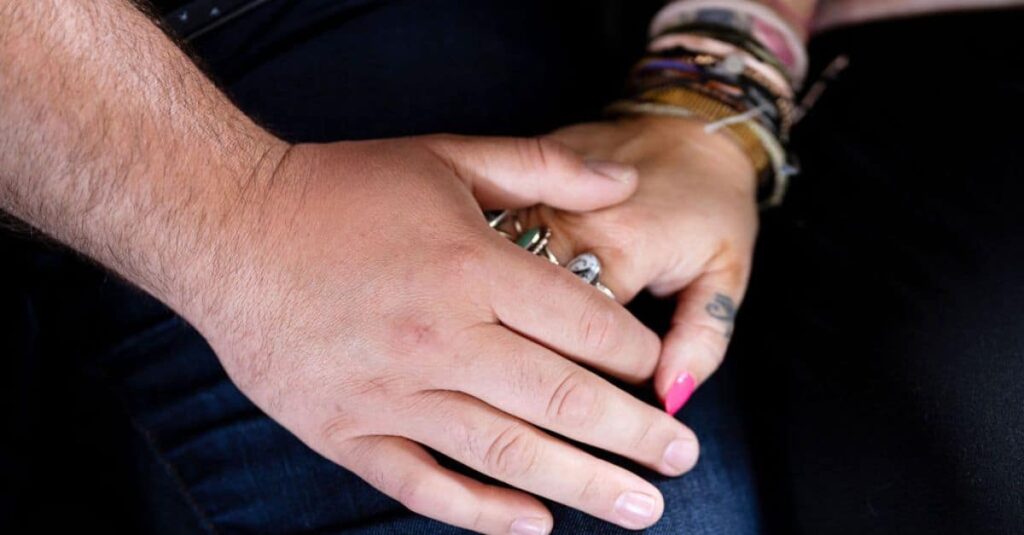A Compassionate Guide Sex Changes With Age/Disability/Illness
The Ultimate Guide to Sex and Disability
I once heard someone say that we are all either currently disabled or not yet disabled and that, if we live long enough, all of us will experience illness or injury that changes how we live and love. That statement resonates. Life’s journey inevitably brings changes to our bodies and personal developmental circumstances, often in ways we might not expect.
I’m willing to bet you know someone who’s life was dramatically impacted by the onset of an autoimmune disease, or by a workplace injury. Aging, mental health challenges, and various health conditions or physical disabilities can significantly impact intimate relationships. In this blog, I will explore effective strategies to adapt and sustain fulfilling sexual pleasures amidst these changes.
The impact of disability on intimacy
As humans, we are created as sexual beings. Mobility impairments, chronic pain, and neurological disorders rank high among conditions that disrupt our sexual functioning. For instance, arthritis, spinal cord injuries, and multiple sclerosis may restrict movement and increase discomfort, demanding significant adjustments in the bedroom. Furthermore, neurological conditions might interfere with arousal or orgasm, complicating sexual pleasure.
A pervasive stigma exists that desexualizes individuals with disabilities, often under the misguided belief that they lack sexual desire or are undeserving of sexual activity. This stigma can result in isolation and negatively impact mental health. Disability advocates seek to dismantle these misconceptions through open dialogue and sexual education. The truth is that all people are sexual beings in one way or another, even those whose lives are impacted by disability.
Exploring resources and support systems
A variety of advocacy resources are available for those facing these challenges.
- Organizations and service providers such as the Sexual Health and Disability Alliance (SHADA) and websites like sexualityanddisability.org offer sex education tools and discussion forums.
- Local support groups provide a platform for disabled people and individuals with other impairments to share personal experiences and strategies, enriching the support network for affected individuals.
The financial strain of living on a disability income can indirectly impact sexual health by limiting access to necessary healthcare, therapy, and adaptive sexual aids. Advocating for enhanced coverage and support systems is vital in addressing these financial barriers.
- Couples therapy can be invaluable for partners dealing with changes in their sexual relationship due to disability or aging. It offers a safe space to address issues related to emotional and physical intimacy, helping both partners feel acknowledged and valued.
Safe exploration of sexuality

Experimentation with different positions, devices, or expressions of sexuality can enrich the intimate relationships of those with disabilities. Modifications might include the use of adapted sex toys, supportive cushioning, or sensory play, which focuses on non-traditional forms of stimulation.
Prioritizing safety during these explorations is crucial to prevent sexual abuse. This includes honest communication about boundaries, desires, and potential discomforts within the romantic relationship.
Online platforms can also serve as safe environments for meeting potential partners and discussing needs and boundaries before physical encounters.
Maintaining a healthy sexual life
Continuing a healthy sexual life when you have a disability requires both physical and emotional care. Regular consultations with healthcare providers who specialize in and respect your sexual health needs are essential. They can assist in managing symptoms that may interfere with sexual activity, such as pain or fatigue, and discuss treatment options.
Health professionals also offer guidance on safely using medications or physical aids, such as lubricants or treatments for erectile dysfunction. Sex therapists or counselors can provide strategies to overcome emotional or psychological barriers, enhancing the sexual experience.
Unfortunately, it can be difficult to find medical providers who are both comfortable discussing sexual health, and well-versed in these topics. When you’re looking for healthcare providers, ask the following questions and pay attention both to the words they use and their physical reaction to the question.
- How do you approach topics related to sexuality and sexual health in your practice?
- Can you describe how you’ve handled discussions about sexual orientation and gender identity with your patients?
- What are your views on alternative sexual practices and relationship structures, such as kink or polyamory?
- How do you ensure a non-judgmental and inclusive environment for all your patients, regardless of their sexual backgrounds or preferences?
- What resources do you typically recommend for someone looking to explore their sexuality safely?
- Do you have any training or continuing education in human sexuality?
- How do you handle personal biases when discussing sexual health with your patients?
Communication and intimacy with partners
Partners play a significant role in maintaining a balanced perspective on sex and intimacy. If you struggle communicating with your partner about how disability or chronic illness impacts your sexual function and desire, working with a therapist, can help you develop the tools to do so. When discussing this with your partner, consider sharing the following.
- Ways your sexual desire is impacted or different.
- Ways the physical sensations of sex have changed.
- Insecurities you hold about the changes in your life and body.
- Any sexual experiences you’d like to try with them.
Sharing like this requires vulnerability, and that can be tricky in both new and established relationships. It may help to remind yourself that your partner chose you, and is continuing to choose you, and, if you need it, it’s okay to ask for that reassurance.
Open communication about each partner’s needs, desires, and limitations is the cornerstone of a healthy sexual relationship. Regular discussions and shared intimacy sessions ensure both partners feel connected and valued.
Educating oneself about a partner’s condition and actively participating in their medical journey can foster deeper understanding and support within the relationship.
Psychological Well-being and Adaptive Sexual Practices
In addition to medical care and support from intimate partners, support from family members, friends, therapists, and even your workplace all play a role in how well you adapt to the new life you build after disability or illness.
Sexual health is intimately connected with psychological well-being. Issues like body image, intimacy, and sexual identity can be profoundly impacted by physical changes due to aging or disability. Addressing mental health challenges through counseling can significantly improve one’s quality of life and sexual pleasure.
Support groups are crucial for psychological health, offering a sense of community and shared experience that can mitigate feelings of isolation.
Adaptive practices are essential in maintaining an active sexual life. Exploring new methods of experiencing intimacy and sexual pleasure, such as the use of adaptive devices or engaging in sensory play, can significantly enhance the intimate relationship.
You get to define your sexual life

Adapting to the challenges of disability, aging, or illness in maintaining a fulfilling sexual life hinges on adaptability, open communication, and a supportive network. By addressing physical, emotional, and relational aspects comprehensively, individuals and couples can continue to enjoy a mutually satisfying and safe sexual relationship, underscored by respect and understanding.



